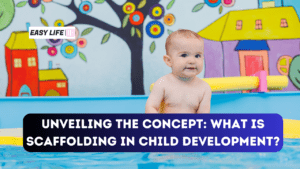Helicopter parenting: This blog explores the phenomenon of helicopter parenting, a parenting style in which parents are excessively involved in their children’s lives, and constantly monitor their activities. It delves into the pros and cons of helicopter parenting, highlighting its benefits, such as increased safety and improved academic performance, while also examining its drawbacks, such as stunted independence, increased stress and anxiety, and impaired social skills. The blog also examines the reasons why parents become helicopter parents, including fear of harm, desire for success, cultural and social pressures, personal anxiety, and lack of trust.
Table of Contents
ToggleWhat is Helicopter parenting?
Helicopter parenting is a parenting style in which parents are overly involved in their children’s lives, constantly hovering around them, and closely monitoring their activities. Helicopter parents often micromanage their children’s lives, making decisions for them and providing a high level of guidance and control. This parenting style is well-intentioned, to protect and support children, but it can also have negative effects on their development, such as stunted independence, increased stress and anxiety, and impaired social skills. The term “helicopter parenting” was coined in the 1990s, and the trend has become increasingly common in recent years.
Why Do Parents Become Helicopter Parents?
There are several reasons why parents become helicopter parents. Some of the common reasons include:
Fear of Harm:
Parents may become helicopter parents because they are afraid that their children may get hurt or experience harm. They want to ensure that their child is always safe, which can lead to overprotectiveness and constant monitoring.
A desire for Success:
Many parents want their children to be successful in life, and they believe that constant involvement and guidance will help their children achieve success. They may become helicopter parents because they want to ensure that their child is doing well academically, socially, and emotionally.
Cultural and Social Pressures:
In some cultures and social groups, there is an expectation for parents to be highly involved in their children’s lives. Parents may become helicopter parents because they feel pressure to conform to these expectations.
Personal Anxiety:
Some parents may become helicopter parents because of their own anxieties or unresolved issues. They may project their fears and worries onto their child and feel that they need to constantly monitor and control their child’s life.
Lack of Trust:
Parents may become helicopter parents because they do not trust their child’s abilities or judgment. They may feel that they need to be involved in every decision and aspect of their child’s life to ensure that things are done correctly.
It is important to note that while helicopter parenting may come from a place of love and concern, it can also have negative effects on a child’s development. Parents need to strike a balance between being involved and allowing their children the freedom to make mistakes and learn from them.
Helicopter Parenting: Pros and Cons
Parenting has always been challenging, but modern parenting comes with its own set of unique challenges. One of the most prominent among these is the phenomenon of “helicopter parenting.” This term is used to describe parents who are excessively involved in their children’s lives and are constantly hovering around them, like a helicopter. While this parenting style is well-intentioned, it can have both positive and negative effects on children. In this blog, we will explore the pros and cons of helicopter parenting.
Pros of Helicopter Parenting:
-
Increased Safety and Security:
One of the benefits of helicopter parenting is increased safety and security for children. Helicopter parents are always watching over their children, ensuring that they are safe and protected from harm. They keep a close eye on their children’s activities and intervene if they sense any danger.
-
Improved Academic Performance:
Helicopter parents are known to be highly involved in their children’s academic lives. They ensure that their children are doing well in school and provide them with the necessary resources and support to succeed. As a result, children of helicopter parents often perform well academically.
-
Better Emotional Support:
Helicopter parents are highly attuned to their children’s emotional needs. They provide them with constant support, reassurance, and encouragement, which can be beneficial for a child’s emotional well-being.
Cons of Helicopter Parenting:
-
Lack of Independence:
Helicopter parenting can stifle a child’s independence and autonomy. Children who grow up with helicopter parents may struggle to make decisions and take risks on their own. They may also be overly dependent on their parents for guidance and support.
-
High Levels of Stress and Anxiety:
Children of helicopter parents may experience high levels of stress and anxiety. Constant parental involvement can create pressure to perform well and fear of failure. This pressure can lead to stress, anxiety, and even depression.
-
Impaired Social Skills:
Helicopter parenting can also impair a child’s social skills. Children who grow up with helicopter parents may struggle to interact with their peers, as they may lack the necessary social skills to do so. They may also struggle with conflict resolution and problem-solving.
Conclusion:
In conclusion, helicopter parenting has both pros and cons. While it can provide children with increased safety, improved academic performance, and better emotional support, it can also stifle a child’s independence, create high levels of stress and anxiety, and impair social skills. As with any parenting style, it is essential to strike a balance and find a middle ground that works best for both the child and the parents. Children need guidance and support from their parents, but they also need the freedom to make mistakes, take risks, and learn from their experiences.










3 thoughts on ““Helicopter Parenting: Pros, Cons, and Why Parents Adopt This Style””
Pingback: The Importance of Effective Discipline in Parenting
Pingback: Effective Communication: The Key to Building Strong Relationships
Pingback: Adult Children of Emotionally Immature Parents - Book Reviews